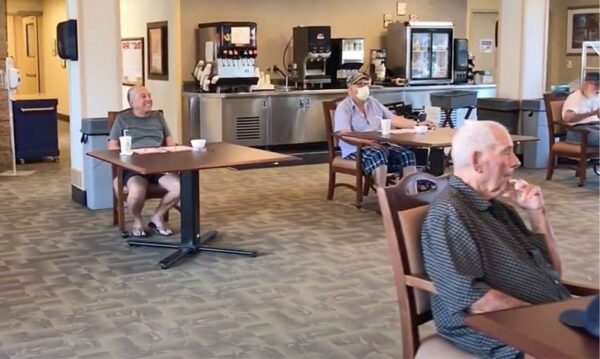
California state veterans’ homes hold COVID-19 infections to single digits
Just three residents of California state veterans’ home have contracted COVID-19 and only two have died, a sharp contrast to what’s transpired in similar long-term care facilities in New Jersey, New York, Massachusetts and elsewhere in the country. The California Department of Veterans Affairs (CalVet) thorough preparation and early response is being credited for helping prevent the highly contagious virus from infecting more of the 2,100 veterans who live in the state’s eight homes.
State veterans’ homes appear to have been hit especially hard by the outbreak. But a lack of comprehensive data about COVID-19 infections in federal, state and private nursing homes makes it difficult to compare how each is handling the infections. In addition, the residents of state veterans’ homes are primarily men – who appear to be more susceptible to the virus – and often have other health issues.
Nearly 140 residents of New Jersey’s trio of state veterans’ homes have died as a result of COVID-19 infections, 76 at the Paramus facility alone. The Long Island State Veterans Home in New York reported 68 deaths as of Tuesday. And the deaths of more than 70 at the Holyoke Soldier’s Home in Massachusetts has prompted federal and state investigations.
In addition, four Democratic U.S. senators asked the Government Accountability Office to review VA’s oversight of state veterans’ homes last week in light of a 2019 GAO report that recommended the agency improve its efforts. “The recent deaths of veteran residents and other care challenges at State Veterans Homes during the COVID-19 public health emergency remind us that VA’s implementation of these recommendations would contribute toward improved care quality at these facilities nationwide and better inform veterans and their families about the best care options,” the letter stated. “While VA does not supervise or control the administration of State Veterans Homes, VA pays for veterans to receive care at these facilities and is the only entity that inspects every SVH in the nation.”
